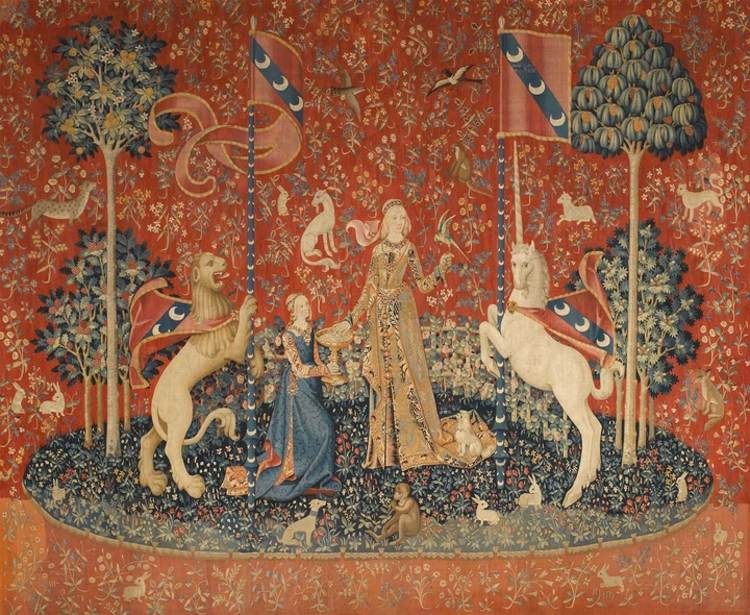Рациональное животное. Как эволюция повлияла на развитие мозга - Владас Гришкевичус
Книгу Рациональное животное. Как эволюция повлияла на развитие мозга - Владас Гришкевичус читаем онлайн бесплатно полную версию! Чтобы начать читать не надо регистрации. Напомним, что читать онлайн вы можете не только на компьютере, но и на андроид (Android), iPhone и iPad. Приятного чтения!
Шрифт:
Интервал:
Закладка:
136. Kenrick, D. T., and L. Gomez-Jacinto. 2013. “Economics, Sex, and the Emergence of Society: A dynamic life history model of cultural variation”. In M. Gelfand, C. Y. Chiu, and Y. Y. Hong (Eds.) Advances in Culture and Psychology, Vol. 3. New York: Oxford University Press.
137. Kenrick, D. T., V. Griskevicius, S. L. Neuberg, and M. Schaller. 2010. “Renovating the pyramid of needs: Contemporary extensions built upon ancient foundations”. Perspectives on Psychological Science. 5: 292–314.
138. Kenrick, D. T., V.Griskevicius, J. M. Sundie, N. H. Li, Y. J. Li, and S. L. Neu- berg. 2009. “Deep rationality: The evolutionary economics of decision- making”. Social Cognition. 27: 764–785.
139. Kenrick, D. T., G.R. Groth, M.R. Trost, and E.K. Sadalla. 1993. “Integrating evolutionary and social exchange perspectives on relationships: Effects of gender, self-appraisal, and involvement level on mate selection criteria”. Journal of Personality and Social Psychology. 64: 951–969.
140. Kenrick, D. T., and R. C. Keefe. 1992. “Age preferences in mates reflect sex differences in human reproductive strategies”. Behavioral & Brain Sciences. 15: 75–133.
141. Kenrick, D. T., R. C. Keefe, A. Bryan, A. Barr, and S. Brown. 1995. “Age preferences and mate choice among homosexuals and heterosexuals: A case for modular psychological mechanisms”. Journal of Personality and Social Psychology. 69: 1166–1172.
142. Kenrick, D. T., N. L. Li, and J. Butner. 2003. “Dynamical evolutionary psychology: Individual decision rules and emergent social norms”. Psychological Review. 110: 3–28.
143. Kenrick, D. T., Y. J. Li, A. E. White, and S.L. Neuberg. 2012. “Economic Subselves: Fundamental motives and Deep Rationality”. Pp. 23–43 in J. Forgas, K. Fiedler, & C. Sedikides (eds.). Social thinking and interpersonal behavior: The 14th Sydney Symposium of Social Psychology. — New York: Psychology Press.
144. Kenrick, D. T., and C. L. Luce. 2000. “An evolutionary life-history model of gender differences and similarities”. In T. Eckes & H. M. Trautner (Eds.). “The developmental social psychology of gender”(pp. 35–63). Hillsdale, New York: Erlbaum.
145. Kenrick, D. T., S. L. Neuberg, V. Griskevicius, M. Schaller, and D.V. Becker. 2010. “Goal-driven cognition and functional behavior: The fundamental motives framework”. Current Directions in Psychological Science. 19:63–67.
146. Kenrick, D. T., E. K. Sadalla, G. Groth, and M.R. Trost. 1990. “Evolution, traits, and the stages of human courtship: Qualifying the parental investment model”. Journal of Personality. 53: 97–116.
147. Kenrick, D. T., F. Sanabria, J.M. Sundie, and P.R. Killeen. 2006. “When dilemmas disappear: How fitness interdependencies transform strategic games”. Unpublished manuscript.
148. Kenrick, D. T., J. M. Sundie, and R. Kurzban. 2008. “Cooperation and conflict between kith, kin,and strangers: Game theory by domains”. In C. Crawford & D. Krebs (Eds.), Foundations of Evolutionary Psychology: Ideas, Issues and Applications (pp. 371–382). Mahwah, New York: Erlbaum.
149. Kidd, C., H. Palmen, and R. N. Aslin. 2013. “Rational snacking: Young children’s decision-making on the marshmallow task is moderated by beliefs about environmental reliability”. Cognition: 126: 109–114.
150. Kirtzman, A. 2009. Betrayal: The life and lies of Bernie Madoff. New York: Harper Collins.
151. Klein, E. 2003. The Kennedy Curse. New York: St. Martin’s Press.
152. Klein, Jonathan. 2007. “Why do people really buy hybrids. The Topline Strategy Group”. http://www.cleanenergycouncil.org/files/Topline_ Strategy_Report_Why_People_Really_Buy_Hybrids.pdf
153. Knaup, A. 2005. “Survival and longevity in the Business Employment Dynamics data”. Monthly Labor Review, May, 2005, 50–56.
154. Kurzban, Robert. 2010. Why Everyone (Else) is a Hypocrite: Evolution and the Modular Mind. Princeton University Press.
155. Lakshminarayanan, V., M. K. Chen, and L.R. Santos. 2011. “The evolution of decision-making under risk: Framing effects in monkey risk preferences”. Journal of Experimental Social Psychology. 47 (3): 689-693
156. Lakshminaryanan, V., M. K. Chen, and L.R. Santos. 2008. “Endowment effect in capuchin monkeys (Cebus apella)”. Philosophical Transactions of the Royal Society B: Biological Sciences, 363. 3837–3844.
157. Larrick, R. P., K. A. Burson, and J.B. Soll. 2007. “Social comparison and confidence: When thinking you’re better than average predicts overconfidence (and when it does not)”. Organizational Behavior & Human Decision Processes. 102 (1): 76–94.
158. Levi, Maurice, Kai Li, and Feng Zhang. 2010. “Deal or No Deal: Hormones and Completion of Mergers and Acquisitions”. Management Science. 56:1462–1483.
159. Levitt, S., and S.J. Dubner. 2005. Freakonomics: A rogue economist explores the hidden side of everything. New York: William Morrow. (Издание на русском языке: Левитт С., Дабнер С. Суперфрикономика. — М.: Манн, Иванов и Фербер, 2010.)
160. Lewin, Alexandra C. (2007). Case Study #4-4, Zambia and Genetically Modified Food Aid / Per Pinstrup-Andersen and Fuzhi Cheng (editors), Food Policy for Developing Countries: Case Studies, 12 pp.
161. N.P. Li, J.M. Bailey, D.T. Kenrick, and J.A.W.Linsenmeier. 2002. “The necessities and luxuries of mate preferences: Testing the tradeoffs”. Journal of Personality and Social Psychology. 82: 947–955.
162. N.P. Li, and D.T. Kenrick. 2006. “Sex similarities and differences in preferences for short-term mates: What, whether, and why”. Journal of Personality & Social Psychology. 90: 468–489.
163. Li, Y. J., D.T. Kenrick, V. Griskevicius, and S.L. Neuberg. 2012. “Economic decision biases and fundamental motivations: How mating and self-protection alter loss aversion”. Journal of Personality and Social Psycholog. 102:550–561.
164. Liberman, V., S.M. Samuels, L. Ross, L. 2004. “The name of the game: Predictive power of reputations versus situational labels in determining prisoner’s dilemma game moves”. Personality and Social Psychology Bulletin. 30: 1175–1185.
165. Lino, M. 2010. “Expenditures on children by families”. 2009. (Miscellaneous Publication № 1528–2009). Retrieved from http://www.cnpp usda.gov/ Publications/CRC/crc2009.pdf.
166. Low, B. S., A. Hazel, N. Parker, and K.B.Welch. 2008. “Influences on women’s reproductive lives: Unexpected ecological underpinnings”. Cross Cultural Research, 42, 201–219.
167. Maner, J. K., C. N. DeWall, R. F. Baumeister, and M. Schaller. 2007. “Does social exclusion motivate interpersonal reconnection? Resolving the “porcupine problem”. Journal of Personality and Social Psychology. 92:42–55.
Прочитали книгу? Предлагаем вам поделится своим отзывом от прочитанного(прослушанного)! Ваш отзыв будет полезен читателям, которые еще только собираются познакомиться с произведением.
Уважаемые читатели, слушатели и просто посетители нашей библиотеки! Просим Вас придерживаться определенных правил при комментировании литературных произведений.
- 1. Просьба отказаться от дискриминационных высказываний. Мы защищаем право наших читателей свободно выражать свою точку зрения. Вместе с тем мы не терпим агрессии. На сайте запрещено оставлять комментарий, который содержит унизительные высказывания или призывы к насилию по отношению к отдельным лицам или группам людей на основании их расы, этнического происхождения, вероисповедания, недееспособности, пола, возраста, статуса ветерана, касты или сексуальной ориентации.
- 2. Просьба отказаться от оскорблений, угроз и запугиваний.
- 3. Просьба отказаться от нецензурной лексики.
- 4. Просьба вести себя максимально корректно как по отношению к авторам, так и по отношению к другим читателям и их комментариям.
Надеемся на Ваше понимание и благоразумие. С уважением, администратор knigkindom.ru.
Оставить комментарий
-
 Мари26 февраль 23:23
История очень интересная и мистическая, нужно было бы закончить эпилогом, что стало с деревней и девушками и Дэймоном? А так...
Мертвая деревня - Полина Иванова
Мари26 февраль 23:23
История очень интересная и мистическая, нужно было бы закончить эпилогом, что стало с деревней и девушками и Дэймоном? А так...
Мертвая деревня - Полина Иванова
-
 Зоя26 февраль 12:49
Чудесная история! Такие книги помогают видеть надежду и радость, даже в самый холодный серый дождливый ноябрьский день. ...
Один плюс один - Джоджо Мойес
Зоя26 февраль 12:49
Чудесная история! Такие книги помогают видеть надежду и радость, даже в самый холодный серый дождливый ноябрьский день. ...
Один плюс один - Джоджо Мойес
-
 Гость Lisa24 февраль 12:15
Автор пишет хорошо! Но эта книга неудачная. Вроде интрига есть, жаль, неинтересная. Скучно! ...
Хозяйка гиблых земель - София Руд
Гость Lisa24 февраль 12:15
Автор пишет хорошо! Но эта книга неудачная. Вроде интрига есть, жаль, неинтересная. Скучно! ...
Хозяйка гиблых земель - София Руд










